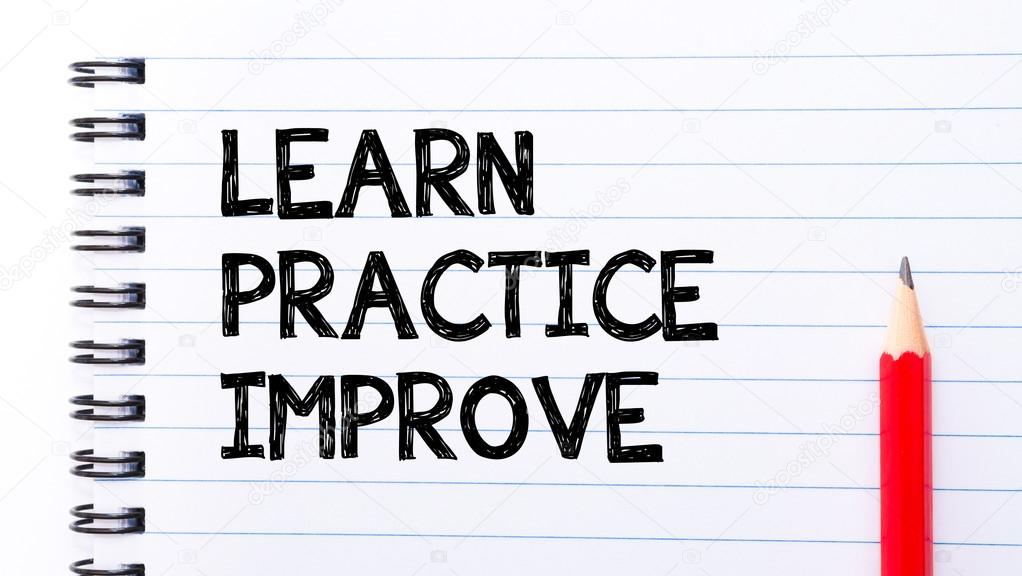|
I read an article on success in life and wanted to share some wisdom. If you think about it everything we do in life is a choice and everything we don’t do is also a choice. In MBA school they teach you opportunity cost with trade-offs per limited time & resources. If you do path A it can come at the cost of not being able to do path B which may be the better path.
Every day we choose things that move us closer to our goal or don't move us closer to the life we want. If the quality of our lives is shaped by the choices we make, and those we don’t make, then the secret of making wise choices is to live by core principles. A lot has been written about the principles for a meaningful and happy life for centuries. Ray Dalio, billionaire investor and hedge fund manager said, “Principles are fundamental truths that serve as the foundations for behavior that gets you what you want out of life. They can be applied again and again in similar situations to help you achieve your goals.” These are a few you can use to refine your personal principles. The most important thing is that you develop your own principles and know them clearly to live by. Ray writes “Think for yourself to decide 1) what you want 2) what is true and 3) what you should do to achieve #1 in light of #2. ” Understanding and following these underlying principles is key to living your best life. I hope this helps you. Don’t spend your life preparing for life. Charles Darwin once said, “A man who dares to waste an hour of time has not discovered the value of his life.” Life is too short if you spend it meaningfully and do what gives you a sense of accomplishment. Life is too long if you spend all your time worrying about the unpredictable future or the regrets of the past. But, only a few people consciously choose to live in the present every day. The future can provide hope, and the past can provide closure but focus on either one obsessively can be hurtful to your mental and emotional well being. In her collection of essays, The Writing Life, Annie Dillard explains: “How we spend our days is, of course, how we spend our lives. What we do with this hour, and that one, is what we are doing. A schedule defends from chaos and whim. It is a net for catching days.... it is a peace and a haven set into the wreck of time; it is a lifeboat on which you find yourself, decades later, still living. Each day is the same, so you remember the series afterwards as a blurred and powerful pattern.” Accept your imperfection and vulnerabilities. Humans are flawed. Perfection is beyond us so accept and be ok with not being perfect. However, it does not hurt to strive for it. As the saying goes, "Shoot for the moon for even if you miss you will fall among the stars!" We are all at times scared, unsure, regretful, longing and living with mistakes. This recognition should inspire compassion for ourselves and others. When you’re willing to be seen as someone who has flaws, you’re telling yourself being human who errors isn’t something to be ashamed of rather an opportunity to learn and do better next time. If you are constantly worried about your vulnerabilities or dwelling on them, chances are you're paying too much attention to negative information. Take action on it to improve vs. dwelling. The real world doesn’t reward perfectionists rather rewards people who get things done and make progress. It’s easier to play to your strengths than wasting time on your imperfections. No matter how many mistakes you make, or how slow you progress, you are still way ahead of people who spend most of their time making excuses because of their weaknesses. Give yourself time to wonder what’s possible and to make moves in that direction. The alternative to perfection isn’t failure, it’s to make your peace with the idea that you are ‘good enough’ and a work in progress. Then take action to be your best! Fall seven times, stand up eight! Life is not elsewhere; it is, fully and properly, here and now We can’t change the past and we certainly can’t predict the future. The only thing within your control is today. The only important moment is the present moment that is why it's called a gift. For anyone who is worried about the future, Seneca, a Roman stoic philosopher advises, “Everyone hustles his life along and is troubled by a longing for the future and weariness of the present. But the man who … organizes every day as though it were his last, neither longs for nor fears the next day… Nothing can be taken from this life, and you can only add to it as if giving to a man who is already full and satisfied food which he does not want but can hold. So you must not think a man has lived long because he has white hair and wrinkles: he has not lived long, just existed long. For suppose you should think that a man had had a long voyage who had been caught in a raging storm as he left the harbour, and carried hither and thither and driven round and round in a circle by the rage of opposing winds? He did not have a long voyage, just a long tossing about.” There is no substitute for persistence How persistent are you about pursuing what you really want? One of the secrets of success is learning to keep moving despite your doubts. There is probably no better example of persistence than the story of Abraham Lincoln. He failed in business at 21, lost a legislative race at age 22, failed in business again at 24, and lost a congressional race when he was 34. At 45 he lost a senatorial race. He failed in an attempt to become Vice President at 47. But he was finally elected President of the United States at age 52. Lincoln never quit. Every failure was a stepping stone until he finally assumed the highest office in America. Don’t give up too soon. As long as you are still actively trying after every failure, you have not failed yet. Give up the desire to be liked and accepted by all People’s opinions of you are not who you are. Eric Hoffer, a moral and social philosopher once said, “A man is likely to mind his own business when it is worth minding. When it is not, he takes his mind off his own meaningless affairs by minding other people’s business.” It is human nature to want to be accepted, hence the pursuit of conformity. But you can make a conscious effort to stop caring what others think so much; to let yourself free. It’s a skill that can be practiced like any other skill. Once you understand how to let go, you will see the world from an entirely different perspective. The key to the good life is about what’s important to your growth, career and total well being in loving yourself and neighbor. When you stop caring so much about what people think, your self-confidence will blossom and you can be more your authentic self. You’ll start believing in yourself and what you can offer the world, without letting outside influences stop you or sway your decisions. Life isn’t linear: not everything goes as planned You won’t achieve every goal. But it’s important to make plans and move toward them upward and onward anyways. Spend just as much time learning what to do when things inevitably stray off your path as you do to create the plan in the first place. Your best strategy when making a plan is to make contingency plans for when life will not unfold according to plan. Don’t approach life with expectations of how things should or shouldn’t be. Don’t get attached to a plan on how things should or shouldn’t work. It’s alright to have goals, but you don’t have to be set on a particular outcome — adapt when necessary. Stop worrying about things you can’t control We all as human beings tend to stress about things we can do nothing about — the past, the future, people’s perception of us, their decisions, thoughts, their happiness, success, and every natural change around us. When you spend your time in “what if” mode, wishing things had been different, you stop making progress. We can only prepare ourselves today for what’s ahead. The only thing you have control over is your thoughts, decisions, attitude, and reactions. When you understand what’s within your control, life becomes easier to handle.v You can influence people and circumstances but you can’t force change in others. If you find yourself worrying about things you can’t control, focus on changing your behavior. By putting your effort on what you can impact, you can make a bigger difference. I hope this life principles are helpful to you. Keep the faith. Believe. And try, try again. Upward and onward. Wishing you the best, God Bless, Keith Washo
0 Comments
Nobody can be uncheered with a balloon.” — Winnie the Pooh
Are you happy? Do you see happy people around you? Sometimes easy, sometimes hard, but keeping happiness going can be challenging. The root of any sustaining happiness is joy which is a deeper spring of contentment and peace that fuels happiness overall. Think of happiness as fleeting when you are happy for a moment, but joy is that deep feeling of satisfaction and peace that all is well in which like water can lift up the happiness float! Some top traits of happy people for you to ponder and implement into your life are as follows: 1. They don’t judge others. The minute you find yourself judging or looking down on others pause and ask yourself is that really making you feel good? Happy people are able to make a distinction between standing up for what they believe in and judging others. As the wise words of Wayne Dyer say, “judging a person does not define who they are. It defines who you are.” To be happier be true to your values and have genuine empathy for the plights of others, but save your critiques for the one person you have ownership over — yourself. 2. They don’t attach to what others think of them. Happy people understand that in life it goes with living that there will always be people who don’t like them/ They’re not dismissive of negative feedback (because they know it can be useful) but they don’t take it personally and take it with a grain of salt; they don’t attach to others’ opinions, and they don’t feel driven to react to them. They’re open, not defensive. They don’t stay stuck in the past, they don’t hold grudges, they let go. They get on with their own lives and plans and allow others space to do the same. What I like the say happier people do the "Teflon Pan" effect to let things just slip off and just move on with good cooking! 3. They‘re okay with being (slightly) out-of-control. The need to be in control of everyting is a recipe for misery because it's just not possible. Happy people understand that control will never fully be ours, that the best laid plans are often thwarted and that no-one is immune to the trials that will happen. So they take charge of the things they can and back themselves to roll with the inevitable punches life will throw at them. Happy people really know and live the serenity prayer, "God, grant me the serenity to accept the things I cannot change, courage to change the things I can, and wisdom to know the difference." 4. They make space for fun. Happy people have challenges and rough spots just like everyone, but as a general rule they’re playful in mind, body and spirit. They get a joke. They make efforts to find and have fun from the wild and adventurous to having a laugh around the kitchen. They’re up for enjoying the Moment. You know that hanging out with them will be good time —that it’ll add to your life, not subtract from it. Take time to smell the roses and have a sunset cheers! 5. They don’t over-indulge — in anything. Moods, emotions, alcohol, drugs, gambling, sex, gaming, social media, work, sleeping — whatever — over-indulgence can lead you down a dark and troubled path, not just for yourself but the people who love you. Happy people self-regulate to keep all in balance. Everything in moderation. This way you never have cause to regret actions or the way you have treated people. They don’t have to worry about what (really) happened the night before. So they can live easily with themselves — and that brings them peace. Plus saying I'm sorry and confessing is a good thing for the moments when we do go over the edge. Then pick up the pieces and move on with anew upward and onward! 6. They “do and give” stuff. Happy people usually have goals they are striving for and blend it with content to live day to day, to get on with whoever and whatever’s right in front of them to do their best at the task at hand. The key is happy people have a drive to “do” things — not to the point of exhaustion or martyrdom, but to be proactive in the world, to make a contribution and be a light. Whether it’s to landscape a garden, play games with their kids, make music, play sports, cook a delicious meal, teach or mentor someone, fix a tech problem, tackle some chores, write a story or paint a picture, build or craft something. Happy people give, and they understand the value of achievement, even on a small scale — and how good it feels to deliver their own little drop of peace, love, and beauty into the world. 7. They hold life lightly. It’s easy to get caught up in the whirl of building a career (and an image and a brand and a reputation), and to overthink the importance of our place in the world. But ashes to ashes and all that — we’re all ending up in the same place. Nothing is an important as we think — not even ourselves. Happy people know this instinctively. They hold life lightly and know there is a bigger purpose and a heaven and eternity mindset at play. If you do these 7 thing It can make you happier. I hope the sharing of this light and wisdom blesses you and makes you have a not just a happy life, but overall a more joyful life that enables more happiness to be in your life. Enjoy, Keith Washo You are not born instantly smart! Nurture vs. Nature. Nurture wins in smartness over time!
You may have seen a child prodigy who can play any classical piano piece at age 7 or a kid who can speak 14 different languages. We we sit back in awe of the talent, but to begin to think that was just a gifted talent or "high levels of intelligence" without any work, practice or discipline is way off. We are all blank slates when we're born. We inherit some inherent above average abilities from our DNA and talents from God, but ultimately our futures depend on our work ethic, practice, and discipline. There are many super smart people who never amount to much, because they lacked the desire to refine their talents and hone their intelligence. And, on the other side of the coin, there are people we all know who had the odds stacked against them and went on to do amazing accomplishments. Point being, people aren’t born smart .People learn how to work with what they’ve got, and become smart as a result. Here is a top 5 of how to be smart! 1. Smart people read a lot! As the quote goes, "Leaders are readers". Now it's amazing when someone who can download books into their brain and remember every single piece of information. But don't compare yourself to them. They are outliers! For most people, reading has to be a practice and a habit. Reading is a skill just like any other. Go too long without reading and stretching your brain, and you’ll find the task to be difficult — especially when it comes to recalling what you’ve read. Smart people read often. And with practice they get better over time. 2. Smart people hang around other smart people. If you want to become smarter, you have to spend time around people smarter than yourself. Remember this quote, “If you’re the smartest person in the room, you’re in the wrong room.” When you spend time with smart people, their drive, their knowledge, their awareness inherently rubs off on you. It raises the standard you hold for yourself. It stretches your brain in ways you can’t get elsewhere. Hold dear to this quote. “You are the reflection of the five people you spend the most time with.” 3. Smart people are ok with making mistakes People who understand how intelligence is cultivated understand that “mistakes” are part of the process in learning. Every misstep is an opportunity to learn a lesson, improve, and move forward. Par of becoming “smart” is not fearing mistakes and instead embracing them. Just try to learn more from other people's mistakes hence the importance of reading! 4. Smart people see value in all types of knowledge. Smart people think, “That’s interesting. I didn’t know that. Tell me more.” Always be curious and see opportunities to learn. There are never enough hours in the day to know everything, so look for golden minutes throughout your day to learn. Smart people embrace random moments of learning, and see them as opportunities to expand who they are and their awareness of the world. 5. Smart people work (very, very) hard. Being “smart” is not a cake walk. You ever hear the phrase it takes 10,000 hours to be an expert. There is a reason for that as practice makes perfect. Hard work to dig into your craft and really learn it inside and out is the key to smart! Smart people don’t shy away from this sort of discipline. They create a life and a schedule that encourages it, forcing themselves to get done what they need to get done in order to remain in a constant state of growth. This is the key to improvement, and to intelligence in general. It doesn’t just “happen.” It takes hard work. In summary, read, hang around with other bright people, be open to failing per process of learning, be open to all wisdom, and work hard. You do this and you will be smart! Enjoy! Keith Daniel Washo Today NC IDEA, in conjunction with the Governor’s Entrepreneurial Council (GEC), hosted the inaugural North Carolina Entrepreneurial Ecosystem Summit with the ambition to catalyze entrepreneurship as an economic development strategy for the state of North Carolina. The Ecosystem Summit is an official event of Global Entrepreneurship Week where from November 12-18, as part of GEW, 10 million people in 170 countries will take part in 39,000 events, and activities that help make it possible for anyone, anywhere to start and scale a business. The Ecosystem Summit brought together the people and organizations who support, encourage and nourish North Carolina’s entrepreneurs to share what is working; address issues and concerns; meet and network with those doing similar work in other communities; and celebrate and promote entrepreneurs and their successes across the state. One of the most interesting presentations was the, The Entrepreneurial Mindset Imperative. In this talk the perception was shared on how the world has changed in ways that now require everyone to be more innovative and entrepreneurial regardless of their chosen path. The theory goes, if we are to adapt and thrive in a rapidly changing world, we must recognize the entrepreneurial mindset as a teachable framework for thinking that can empower anyone to succeed. We enjoyed a great message from Gary Schoeniger, Founder and CEO, The Entrepreneurial Learning Initiative. Here is a summary of some key points shared to support your life and career:
We enjoyed a great night, with great content from featured speaker Doug Kaufman, former CEO of Transloc. Doug shared a message for all salespeople around this theme, "if you want to make serious money, stop focusing on money". Doug is a serial entrepreneur with great experience and shared some good wisdom. Here is summary of some key points to help you with your journey!
Special thanks to Vince Beese and Eric Boggs with T-Rex for putting on this nice event, speaker Doug Kaufman for presenting, and tasty pizza from sponsor DeMos with support from Will Barfield with "Barfield Revenue Consulting"! Tom, author of the book, "Evolve or Die: Lessons for World-Class Innovation & Creativity" delivered an innovative keynote that entertained and educated giving practical knowledge to impact your business and personal life. Some of the topics discussed at AlphaGraphics were:
It's always great to know habits that affect happiness, health, productivity, and success. I been reading on these related topics for years to gain wisdom to apply toward a good life! I read a good article by Andrew Merle that shared insights on this succinctly and they match my own reading and personal experience! Here are top 20 best habits for happiness, health, productivity, and success to support you and your endeavors! Hope this helps! 20. Be generous — Spending money on other people leads to greater well-being and happiness than spending it on yourself. 19. Ask more questions and listen. Paul Sloane, author of "The Innovative Leader", says asking questions is the single most important habit for innovative thinkers. 18. Make Your Bed — Making your bed starts a chain reaction of other productive habits throughout the day. 17. Celebrate — Pause to enjoy your successes before moving on to the next thing. David Campbell, former senior fellow with the Center for Creative Leadership, notes: “Celebrations are the punctuation marks that make sense of the passage of time; without them, there are no beginnings and no endings. Life becomes an endless series of Wednesdays.” 16. Smile — The simple act of smiling reduces stress and increases happiness, even if you need to force a smile. Putting on a happy face actually makes you happier. 15. Buy experiences, not things — Research shows that experiences actually bring people more happiness than material goods. 14. Say no more often — Trying to do everything usually means not doing anything very well. 13. Be on time — Being on time is one habit that accomplishes two important things — it melts away stress and improves relationships at the same time. Consider adding a 50% buffer to the amount of time you estimate something will take in order to show up on time. 12. Choose a good attitude — Attitude is a decision that we make every day. Strengthen relationships and increase your chances of success by deciding to have a good one. 11. Block off time on your calendar to think — Take inspiration from top leaders like Jeff Bezos & Bill Gates by building uninterrupted thinking time into your schedule. 10. Don’t check email first thing in the morning or last thing before bed — Email first thing derails your priorities for the day and email right before sleeping gives you insomnia. 9. Do one thing at a time — Do one thing at a time and pay attention while doing it. Giving our attention only to the task at hand enables us to accomplish more while feeling less anxious and less scatterbrained. 8. Wake up early — Get a jump-start on the day and tackle your most important task first-thing. 7. Limit your daily to-do list to your 3 most important items — And watch your productivity skyrocket. This habit is one of the absolute best ways to positively impact your work and life on a daily basis. 6. Write down the 3 things you are most grateful for at the end of each day — Having an attitude of gratitude has been shown to improve mood and physical health. Lewis Howes, author of The School of Greatness, says “If you concentrate on what you have, you’ll always have more. If you concentrate on what you don’t have, you’ll never have enough.” 5. Eat Food. Not Too Much. Mostly Plants. — This is the philosophy endorsed by leading food researchers. Eat your way to health with this optimal nutrition plan. 4. Read — Reading is one thing all successful people have in common. 3. Get 8 hours of sleep per night — Anything less is not good. Experts recommend sticking to a consistent sleep schedule, going to sleep and waking up at the same time every day. 2. Maintain close relationships — Social connection is the greatest predictor of happiness 1. Exercise — “The single-most powerful tool you have to optimize your brain function,” says John J. Ratey MD in book Spark. Exercising daily can change your life. Hope you enjoy those 20 best habits for happiness, health, productivity, and success. Learn more wisdom like this at TechAndWisdom.com The Innovation Summit is here bringing people together to re-imagine the way we live, work, and play. The conference brought together business owners, thought leaders, change-makers, and entrepreneurs to discuss, challenge, and learn about innovation in a cross-disciplinary environment. The focus for this year's conference was around sustainability. The event defined sustainability as it relates to individual industries per socio-cultural, economic, and ecological initiatives. A wonderful conference packed with engaging interactive talks with audience-generated content, hands-on workshops with resources as takeaways, and connections with industry experts in an accessible, open forum. We went beyond conversation and took some new first steps to break barriers, build relationships, and forge a better future. Here is some key wisdom points shared from the speakers:
|
AuthorArchives
November 2019
CategoriesVisit Our Other Property:
PianoAndWisdom.com Thank you sponsor:
|





 RSS Feed
RSS Feed

